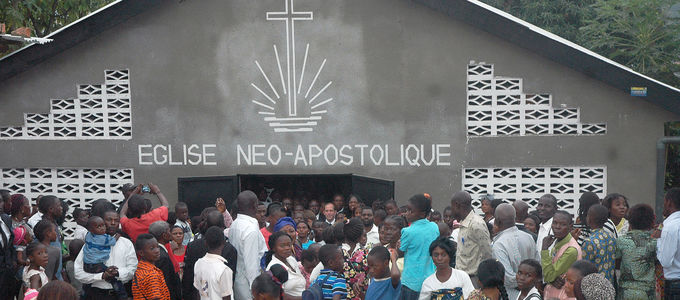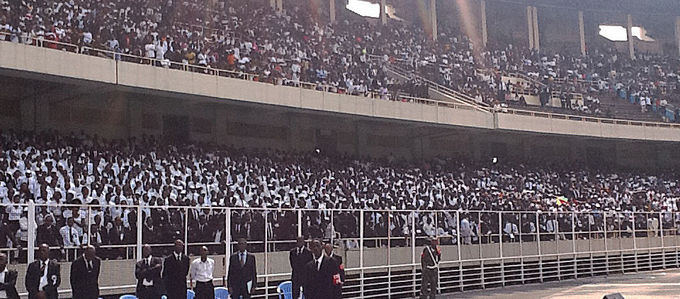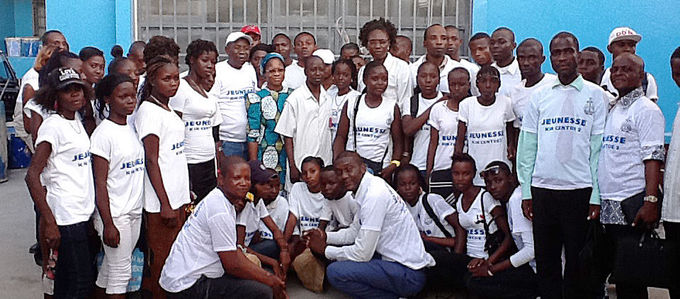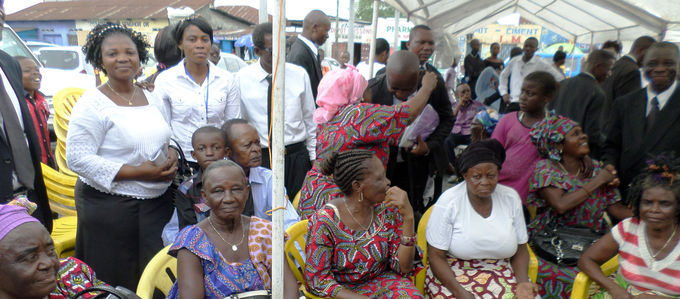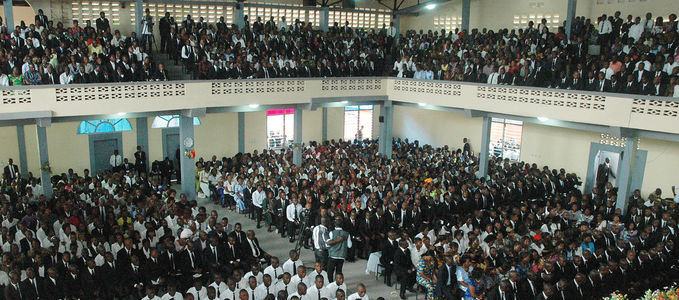
Six metropolises – six continents – six congregations. What is New Apostolic life like in the major cities of the world? nac.today has done some investigating. To begin, we will take you to Africa, to the city where the Chief Apostle will conduct the last service this weekend, ending a round trip through the Congo.
Kinshasa, a dynamic megalopolis
Kinshasa is the largest city in the Democratic Republic of the Congo and at the same time the national capital. The population is estimated to be around ten million. There are no exact numbers. After Lagos and Cairo, Kinshasa is the third largest city on the African continent. The city is sprawled over an area of 10,000 square kilometres. If you combine the population of Kinshasa with the population of the adjoining city of Brazzaville—the capital of the Republic of the Congo—on the other side of the Congo River, you get a conurbation that is home to more people than Cairo.
Until 1966, Kinshasa was called Leopoldville, named after the Belgian King Leopold II. His name is associated with brutal atrocities at the end of the nineteenth century.
The climate in Kinshasa is tropical. The average temperature is between 22 und 27° Celsius. With a mean annual rainfall of about 1,378 millimetres, the city sees a lot of rain.
More than 1,500 congregations
But Kinshasa is a giant in other ways as well. More than 130,000 active New Apostolic Christians live in the city. There are some 1,700 congregations, 8,700 ministers, nine Apostles, and eleven Bishops—and all in one city.
And the congregations in Kinshasa are growing. The annual growth rate is about four per cent. That means that by the year 2020 there will be an active membership of more than 150,000. And this in spite of the fact that brick or cement church buildings are more the exception than the rule. District Apostle Michael Deppner, who has been living in Kinshasa for many years now, developed a strategy to provide enough churches for the people: he wants to build one central church per eight congregations—a very ambitious goal.
The Church is on the best way to meeting this target. Currently there are 128 such buildings—of a total of 206 that are needed. The average attendance in these central churches is between 400 and 800. In the rural areas, where there are no central churches, the members gather for divine services outdoors or in somebody’s house.
A young city
Kinshasa’s population is young. Children and young people make up the greatest percentage of our congregations. This is on account of the country’s demography. There is a high birth rate. The New Apostolic Church has been operating officially in the country since 1978. The divine services are held mostly in Lingala, one of a number of languages spoken in the city. Across the country, there are over 200 languages. Many people speak French; the lingua franca in the region.
In recent years, the field of music in the congregations has developed by leaps and bounds. There are many talented people who would love to learn to play a musical instrument. Most of the musical instruments come from Europe, and are donated: stringed instruments, brass, and woodwinds.
And there where there are no instruments whatsoever, the brothers and sisters sing their traditional songs, for which they do not need any accompaniment. The traditional songs speak about Jesus Christ, the salvation effected by Him, and victory through faith.







